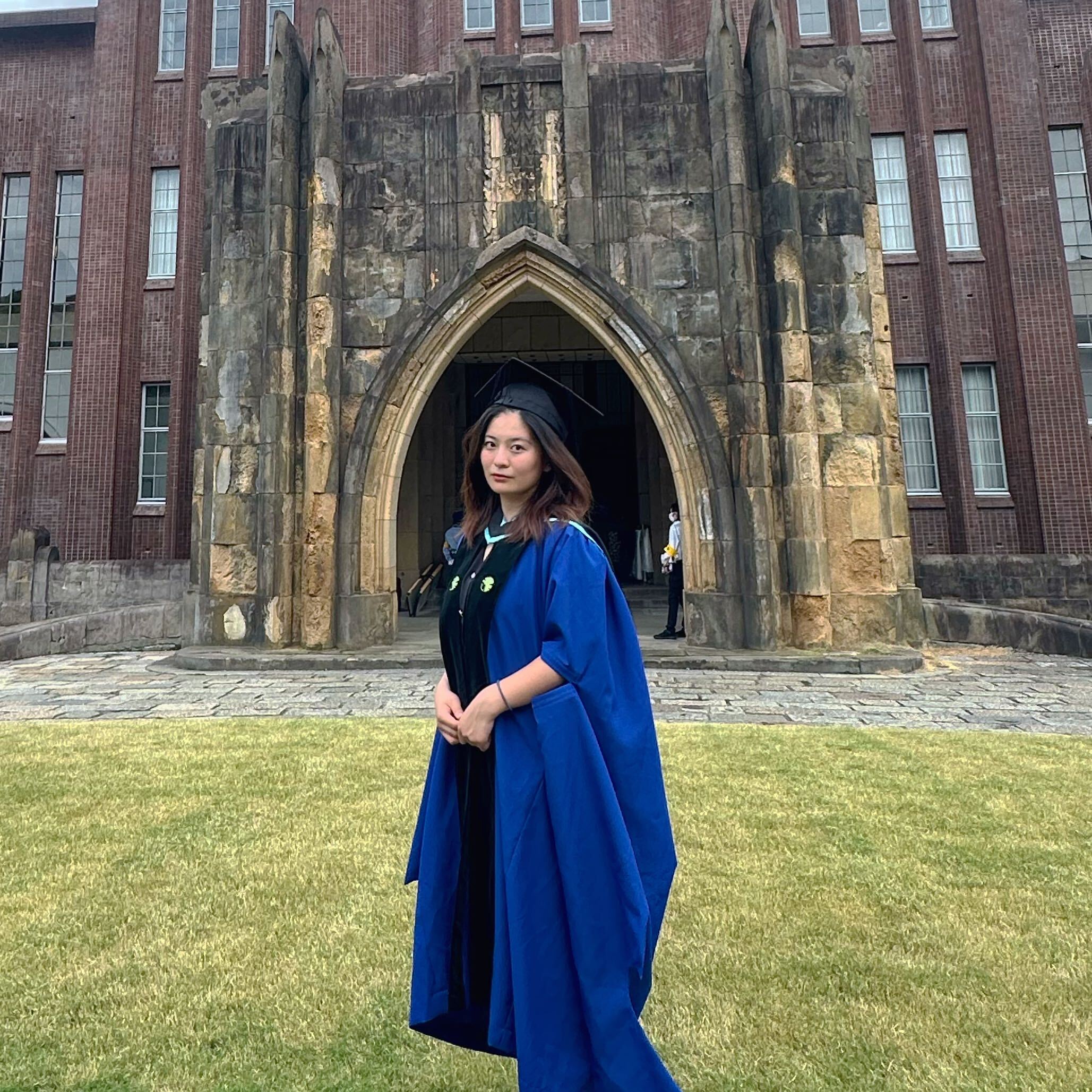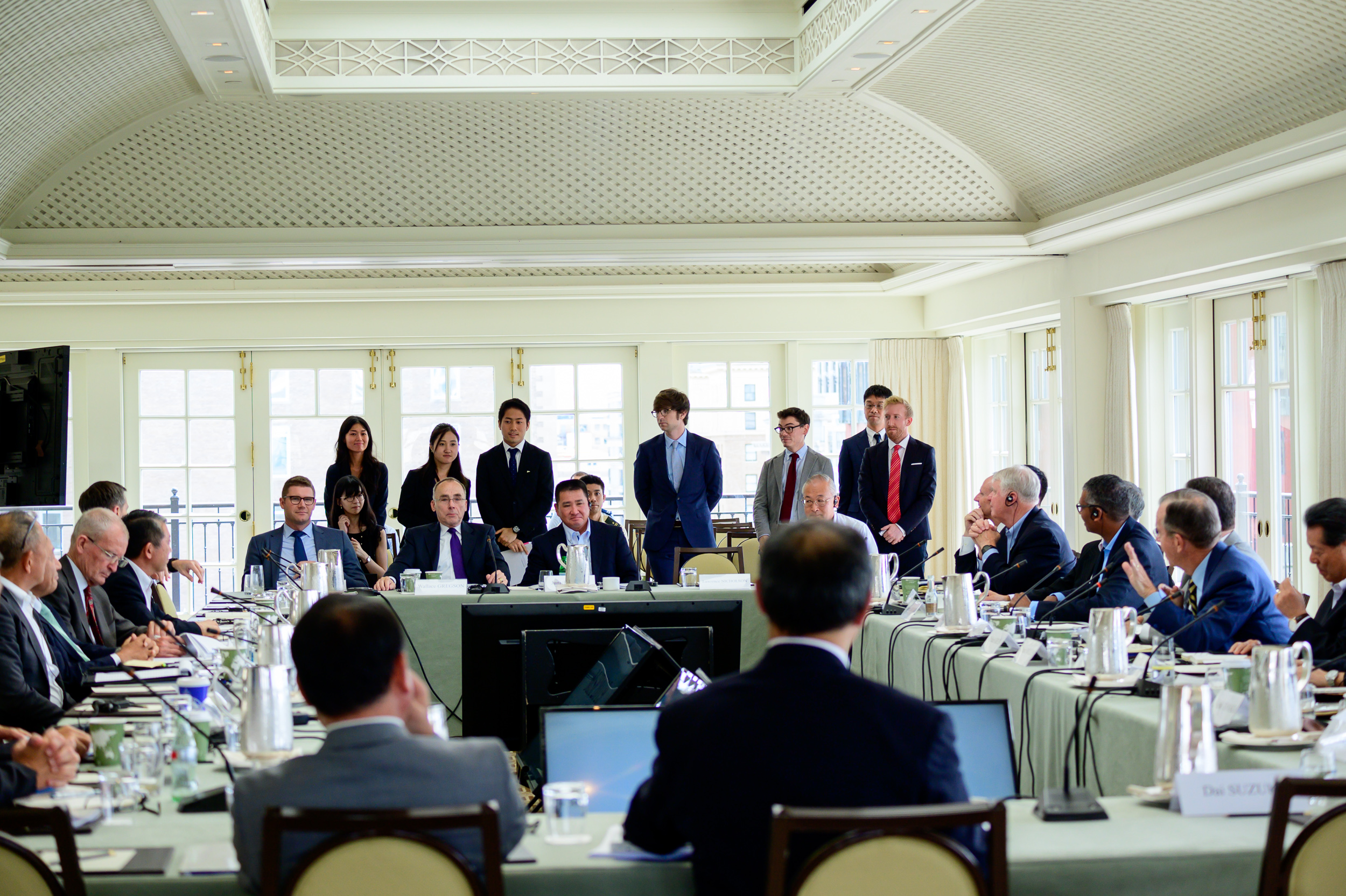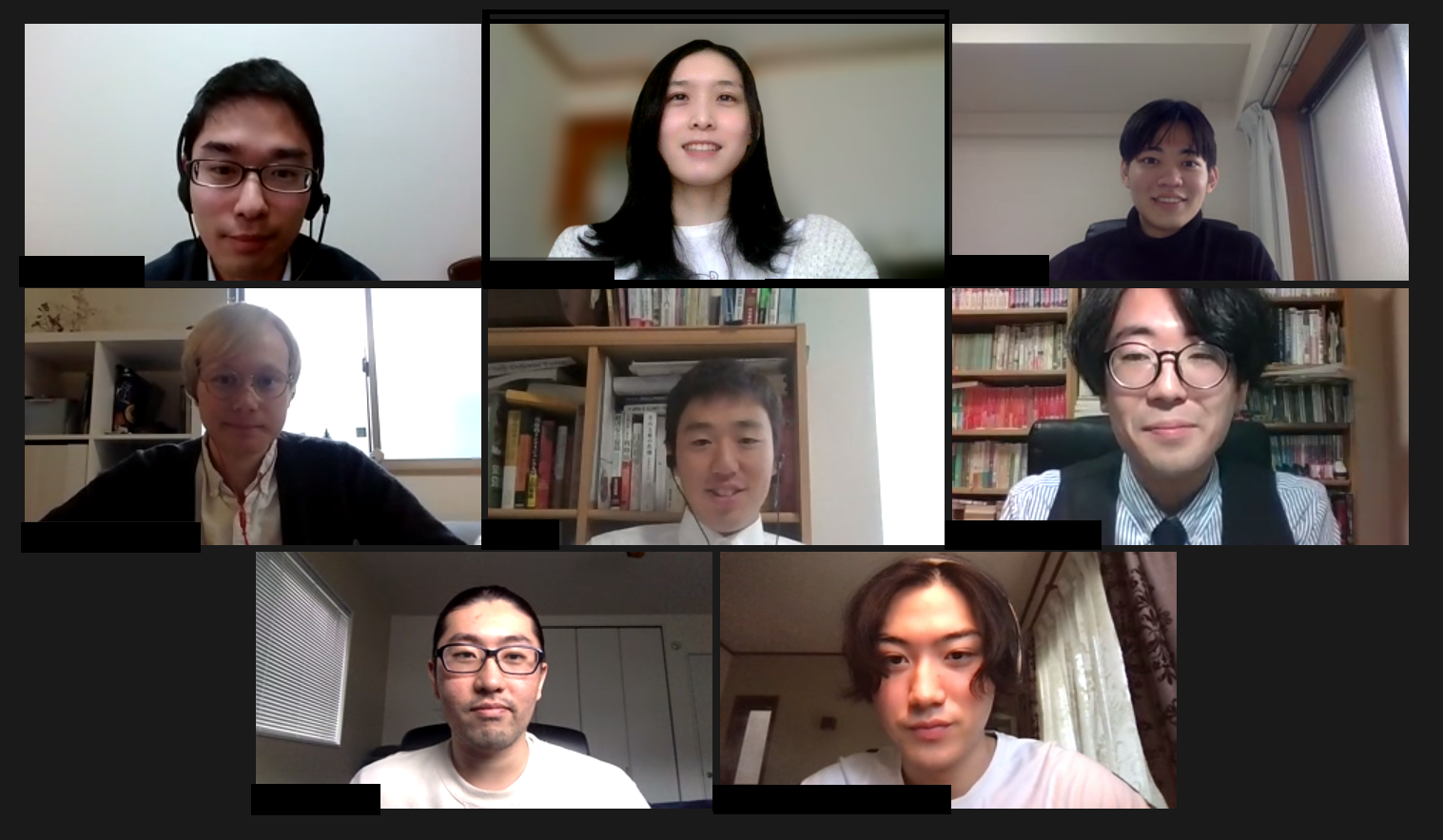
【Added on April 20, 2022】Due to current project needs, we are now only accepting applicants who have at least N2 (upper-intermediate) or equivalent level of Japanese. We will also be suspending the acceptance of applications from those who live outside of Japan at this time.
API offers full-time and part-time internships for undergraduates, postgraduate students, and recent graduates who are interested in gaining practical experience at a public policy think tank. Under the supervision of project managers, interns participate in a variety of activities that support individual programs, including research, writing, editing, project development, project management and outreach activities. We currently only offer unpaid internships for those who live outside of Japan.
INTERNSHIP OPPORTUNITIES
|
Instructions for Applicants |
At API, we do not offer a generic internship program and instead we ask applicants to select an internship spot for a specific program. The individual project managers will review internship applications and interview those selected. |
|---|---|
|
Eligibility |
Applicants
|
|
Terms and Conditions |
|
|
Applications |
Please submit the following information in PDF format to  . Before submitting your application, please read our privacy policy and understand that we will use your personal information only for the purpose of this application. When you send the email, please send it from your university email account (not from a free email account such as Gmail). We do not accept ZIP files. . Before submitting your application, please read our privacy policy and understand that we will use your personal information only for the purpose of this application. When you send the email, please send it from your university email account (not from a free email account such as Gmail). We do not accept ZIP files.
We will only contact applicants short-listed for interviews. |
|
Inquiries |
If you have any questions, please contact us at |
Internship Experience
“Interact with the world and unlock your new possibilities”
-

-
Yui Sasaoki
May 2023-Oct 2023
University of Tokyo, Graduate School of Public Policy
Public Relations (PR), Global Council (GC)

Yui Sasaoki
May 2023-Oct 2023
University of Tokyo, Graduate School of Public Policy
Public Relations (PR), Global Council (GC)
What made you apply for the internship opportunity at API?
As a Japanese national who grew up in China and a graduate in international studies from Peking University, this decision was a natural progression for me. API offered a unique opportunity to me to reconnect with Japan and gain insights into the world from a Japanese perspective. I believed that interning at API would broaden my horizons and provide a deeper understanding of international relations.
Furthermore, my study experience in China and China’s challenging role in global affairs made me more curious about the dynamics among different decision-makers, and how different political actors are affecting the development of world politics. My aspiration was to gain a profound understanding of global affairs through my experience with API. In a rapidly changing global landscape, API allowed me to remain constantly updated on world events. Working at API instilled in me a sense of hope in becoming an active participant in international relations.
API’s esteemed reputation for independence and rapid growth, along with its role as a think tank facilitating connections among various political stakeholders, strongly resonated with me. I wanted to be a part of this remarkable organization, with the aim of engaging with the world in a more meaningful manner. Joining API’s PR team meant contributing to its visibility and public awareness. I aspired to connect the public with other political participants, enabling them to hear the voices of our experts and share their own perspectives with the world.
Ultimately, I viewed working with API as a pivotal transition from being a student to becoming a contributing member of society, for which I am immensely grateful.
What were your assignments in this internship?
Throughout my internship, my core responsibilities revolved around supporting API’s PR team. These tasks encompassed managing social media platforms, conducting data analytics on various channels, such as YouTube, the website, Twitter, and Facebook, and offering strategic marketing advice. I also organized round table transcripts and published our latest articles on our website. Furthermore, I crafted instructional materials to aid future interns in data analytics and marketing.
It is essential for our PR team to hold high awareness of audience engagement, stay attuned to prevailing trends, and identify potential target demographics. My experience at API created the perfect platform for refining my skills of data analysis, a skill I had previously employed to gain deeper insights into our audience.
Within API, the PR team serves as the primary interface with the public, actively soliciting and evaluating their feedback. Among my main responsibilities, one task is to interpret audience feedback and collaborate with my team to form enhanced marketing strategies.
Another important aspect of my role was supporting IHJ’s Global Council by conducting research, translating documents, and gathering information for our researchers. API allows me to integrate my Chinese language skills and academic experience into my work. Furthermore, it also allows me to re-observe China from different points of view by letting me participate in many research tasks involving China’s foreign policies.
API offered me the opportunity to explore my passions, establish valuable connections, and chart my career path.
What has been your most memorable event during the internship?
One standout memory from my internship was participating in a round table meeting. It was an enlightening and thought-provoking experience. In that room, surrounded by brilliant minds from different countries, I felt honored to witness the evolution of bilateral relationships over decades.
The guest speakers and researchers at API embody the future I aspire to achieve. They inspired me to remain curious about society and to stay connected with the world. This memory will be eternally cherished.
What is your take away from your internship experience?
My internship experience with API taught me invaluable lessons about working efficiently both independently and within a team. I developed multitasking skills, employed my skills and knowledge, and improved my communication abilities. It was a practical experience for me, someone who had studied politics for nearly six years and was on the cusp of entering the workforce. API instilled in me the importance of maintaining a positive, curious outlook on the world, a diligent work ethic, and unwavering motivation for life. It unlocked my potential, allowing me to not only acquire new transferable skills but also to discover more about myself.
Here, I had the opportunity to learn more about the world and, equally important, about myself.
Your message to future Interns
To all future interns, I hope you view this internship as a transformative chapter in your life. Embrace the opportunity to explore the world alongside us and challenge yourselves.
“Learning through Helping Europe and Japan Move Forward Together”
-

-
Thomas Stables
May 2021-Aug 2022
Waseda University, Graduate School of Asia Pacific Studies
Liberal International Order (LIO), CPTPP

Thomas Stables
May 2021-Aug 2022
Waseda University, Graduate School of Asia Pacific Studies
Liberal International Order (LIO), CPTPP
What made you apply for the internship opportunity at API?
In September 2019, I was given the opportunity to study in Japan on a Monbukagakusho (MEXT) scholarship, in order to undertake an MA in International Relations at Waseda Universities’ Graduate School of Asia Pacific Studies. Previously, during my undergraduate studies, I was fortunate enough to gain work experience through volunteering in the economic development department of S.K.I.P- an NGO dealing with poverty alleviation in Trujillo, Peru. I had also been fortunate enough to spend a short period gaining work experience in the UK Parliament, working for an MP. Both experiences left me feeling that many of the world’s most pressing issues are global, both in scope and in scale, and cannot be solved by one country alone.
Furthermore, my undergraduate studies in politics and international relations at the University of York had caused me to feel that the most important region for understanding and solving the world’s most pressing problems over the next century will be the Asia/Indo-Pacific region, due to its increasing centrality in international affairs. I therefore felt it important to better understand the region, alongside feeling a sense of moral duty to participate in maintaining global peace and prosperity in an increasingly volatile geopolitical climate.
In March 2021, I came across an excellent article written by Dr. Funabashi in The Japan Times and found myself wanting to know more about API, which he was representing in his piece. This led me to discover more about the foundation, its origins in seeking accountability over the handling of the 2011 Fukushima Disaster; and its various projects that have developed over time. I felt inspired to try to get involved. One aspect of API’s ethos that particularly appealed to me was API’s mission statement, which consists of three branches: “Liberalism, Innovation, and Policy Entrepreneurship”. These core values run through everything that API does, allowing the foundation to address a wide range of public and foreign policy issues through a flexible, innovative, and value-driven approach.
What were your assignments in this internship?
My core internship assignments so far have been assisting in the Liberal International Order project, alongside conducting research for Dr Funabashi’s Research Assistant.
Both assignments have brought with them engaging yet varied roles. To me, participating in both tasks have showcased the very best of API’s ability to cooperate with international partners and think originally about global affairs, despite the ongoing challenging conditions of the pandemic.
Within the Liberal International Order project, I have had the opportunity to attend meetings with and listen to experts and leaders in their respective fields across Asia and Europe. My role has largely consisted of taking down the minutes; conducting research for the project; and reviewing potential publishing options for the projects’ second volume. It has been inspiring to take part in the meetings and listen to experts in their respective fields articulate the key challenges in propagating, maintaining, and evolving the liberal international order in an increasingly unpredictable geopolitical climate.
Likewise, the opportunity I have had to work with Dr Funabashi’s Research Assistant has allowed me to conduct research across a wide range of topics: from foreign policy initiatives in the Asia Pacific; to the Fukushima Nuclear Disaster; to the effects of the pandemic on global politics. I have also occasionally had the chance to get involved in speech writing and other similar activities.
What has been your most memorable event during the internship?
For me, rather than any one single event, the most memorable part of the internship so far has been the Liberal International Order meetings. It is really inspiring to observe experts and leaders across a range of cultures and backgrounds work together in order to think about a common set of beliefs and ideas, centred around a particular pressing global issue.
What I have found so interesting about observing the meetings is how those very ideas and beliefs subsequently transform over time into a body of work that can help shape the normative and ontological context by which policymakers may potentially articulate the environment in which they make decisions; as well as what decisions are available to them. In this sense, one experiences first-hand the tangible relationship between ideas and political action, which is both fascinating to see and exciting to play a small part in.
What is your take away from your internship experience?
As we edge towards the first quartile of the 21st century, one could be forgiven for losing oneself in a sense of pessimism with regard to the anarchic nature of the international system and the perceived inability of global actors to maintain global peace, order, and stability. The concoction of pandemics; threats of conflict and violence; economic and political coercion; and ecological crisis/crises could contribute to a belief within oneself that the world is turning in on itself, and that humanity is bound to a race to the bottom.
My time at API however paints a very different picture. I will, of course, take away many important practical skills and experiences: a better understanding of how think tanks operate; gaining insight into the way in which ideas relate to and inform policymaking; critical experience in learning from and working alongside people of different cultures and backgrounds; and skills in communication and research (alongside many other things).
The thing that I will take away which I shall value the most from my internship experience however is a sense of optimism- both about the capacity of people to articulate constructive paths through complicated global issues, as well as the ability of people from different cultures and backgrounds to work together to solve problems through an innovative, yet value-driven approach. In many ways, what API represents is the notion that where there are intelligent, open-minded, and driven individuals who are passionate about maintaining peace, prosperity, and order in the Asia Pacific region, there is ample chance to make the world a better place.
Your message to future Interns
It has been said by an intern before myself, but it is the most fitting word to use to I shall steal it- inspiring!
 APIニュースレター 登録
APIニュースレター 登録


